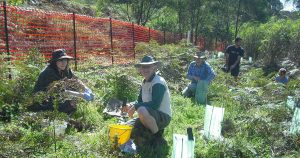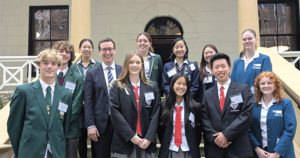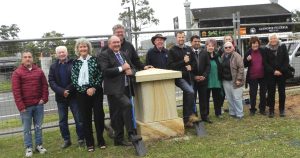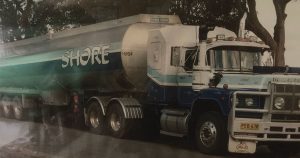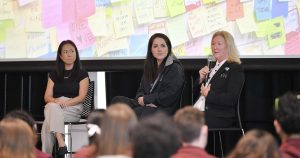Larger than life Kenthurst local John Benyon OAM passed away in 2020. His legacy lives on today in many forms – including having Kenthurst Rotary Park renamed the John Benyon Rotary Park.
Kenthurst Rotary – which John was a member of for 38 years and awarded the prestigious Paul Harris Award – will be holding a special memorial and tribute for John on Monday 29 August at 6.30pm at the Australian Brewery at Rouse Hill. Friends and those who knew John are encouraged to attend. A special video will be shared to mark the tribute.
When asked by a fellow Rotarian what he would like to be remembered for most, John responded with: “Give more than you take in life”.
The below tribute has been written by Gil Kommer, a long-time friend of John’s.
JOHN BENYON OAM
On the 29th of August, The Rotary Club of Kenthurst is holding a special night to celebrate the memory of one of their most loved members and also one of the best remembered by the Kenthurst community, John Benyon OAM.
John was born on the 2nd of October 1927 in Yenda, a small country town 15km east of Griffith, in the Riverina District.
John’s father Felix was born in Calcutta. He joined the English army at the age of 15 and was shipped to the Boer war as a bugler. At the outbreak of the Great War in 1914, John’s father was one of the first to enlist.
Being one of the Anzacs, Felix Benyon took part in the Gallipoli campaign, where he was severely wounded. This injury resulted in the amputation of his leg below the knee some years later. John’s respect and love for the Australian armed services was greatly influenced by his father’s and his own army career.
At the age of two, the family moved to a small shop in Gladesville. Later a home was built in Ryde, where John lived until he was married.
When John was 16 years, his father approached his war-time Colonel, Mr Graham Sand, for a job for his son. John became an apprentice in John Sands Ltd, a printing company.
John’s speciality was in the art of ‘zinc plate etching’, which became the printing plates for the printing presses. During WW2, many of the highly secret maps and code books, used in the Pacific war, originated in that section.
Often John would work late into the night. That he was collected to and from work by armed sailors, showed how vital that job was. John loved to relate… one evening late at home, there was a knock at the door and a jeep with armed sailors had come to bring John, post haste to work.
An American plane, carrying sensitive new code book’s, had been shot down. In fear that the Japanese could get hold of them, these needed to be reprinted quickly in a different code. When the job was done, ‘somehow’ there was no army transport available to bring these to a waiting seaplane.
The apprentice John (who would not be noticed in his work clothes), as a 17-year-old, with a brown paper parcel, was asked to take the tram and deliver these highly secret documents to a waiting plane in Rushcutters Bay.
From starting his work at John Sands as an apprentice, John worked his way up to becoming the CEO of the company with over 2,000 employees.
John joined the regular army in August 1954 as a Lieutenant for a short period until February 1956. After leaving the army, John joined the Army Reserve and resigned from the force with the rank of Captain.
John met his lovely wife Helen at Presbyterian Church functions. Helen was the Minister’s daughter, they married in April 1949. After a few moves, they bought their 100-year Heritage home in Kenthurst, where they lived until 2019, when they moved into the Veterans Age Care facilities in Galston.
For all who knew John well, it would have been difficult to imagine a world without him. John had that rare magnetic personality. Whenever you saw John, he was surrounded by people.
John was a straight talker. You never doubted what he meant. In any discussion, or (better still as far as John was concerned) a debate or argument, John would hold up his part well, spliced and spiced with colourful Australian idioms.
In his retirement, John decided the dedicate his spare time to help the Kenthurst community. John’s efforts and initiatives included:
His dedication towards the preservation and maintenance of the heritage-listed Literary Institute Buildings.
His determination with constant and arduous effort to fully maintain the Kenthurst swimming pool for the benefit of the local community.
His unwavering effort to maintain the park in as much a pristine condition as possible for all to enjoy.
Introduced the flag raising ceremony on Australia Day at Kenthurst Park.
Established the Monument of Remembrance and initiated the well-attended Anzac Day Ceremony.
Expanded and maintained the popular children’s playground in the park.
Initiated many improvements in the park, to the BBQs, footpath, water bubblers, seatings, porticos, tables and benches, basketball court, etc.
John was chosen “Citizen of The Year” by the then Baulkham Hills Council in the early 1990s. In 2014 John was awarded his OAM in recognition of his 30 years of outstanding selfless dedication in helping his local community.
John was a dedicated Kenthurst Rotarian for 38 years and was awarded the prestigious Paul Harris Award.
– BY GIL KOMMER, KENTHURST
Table of Contents
Toggle




